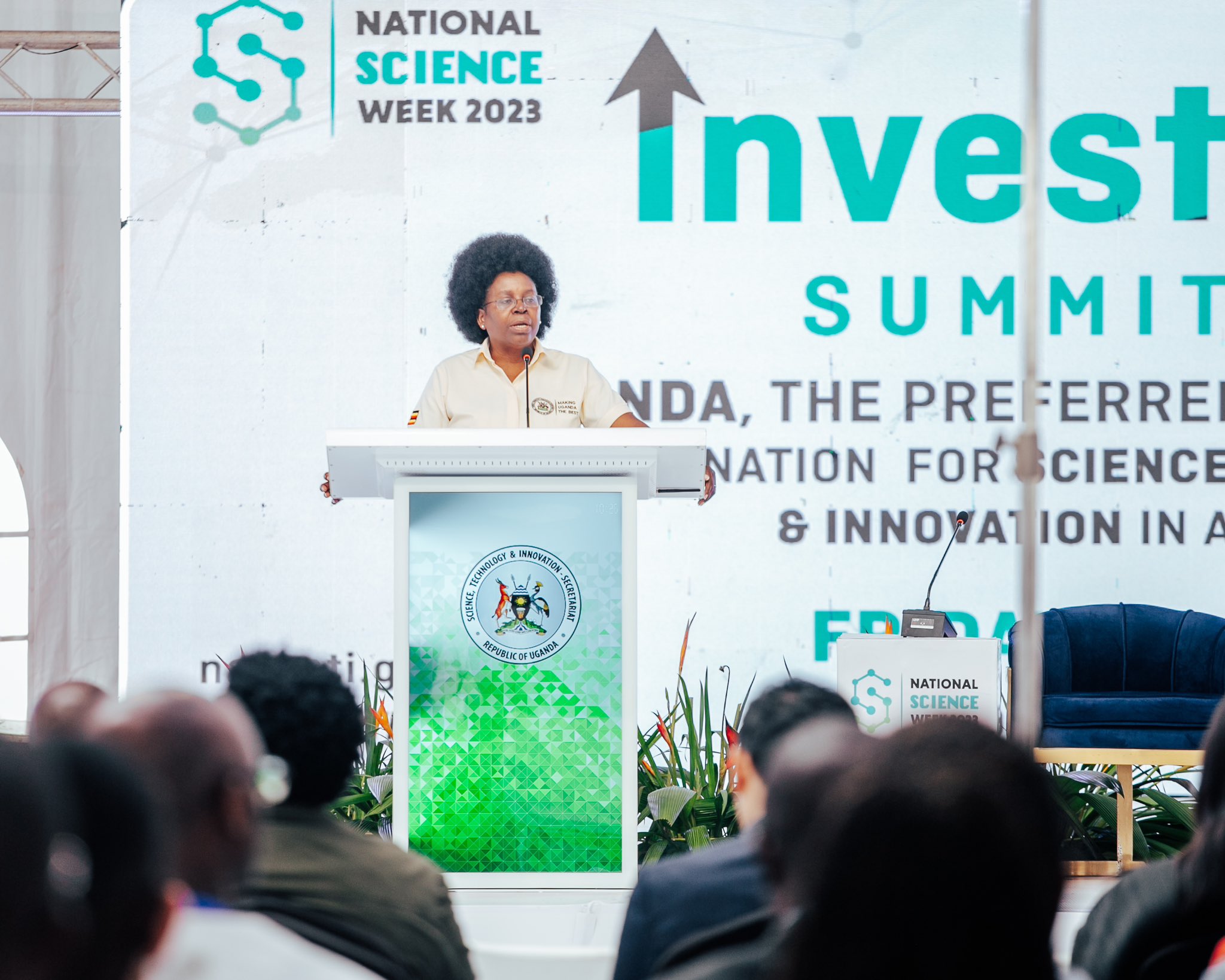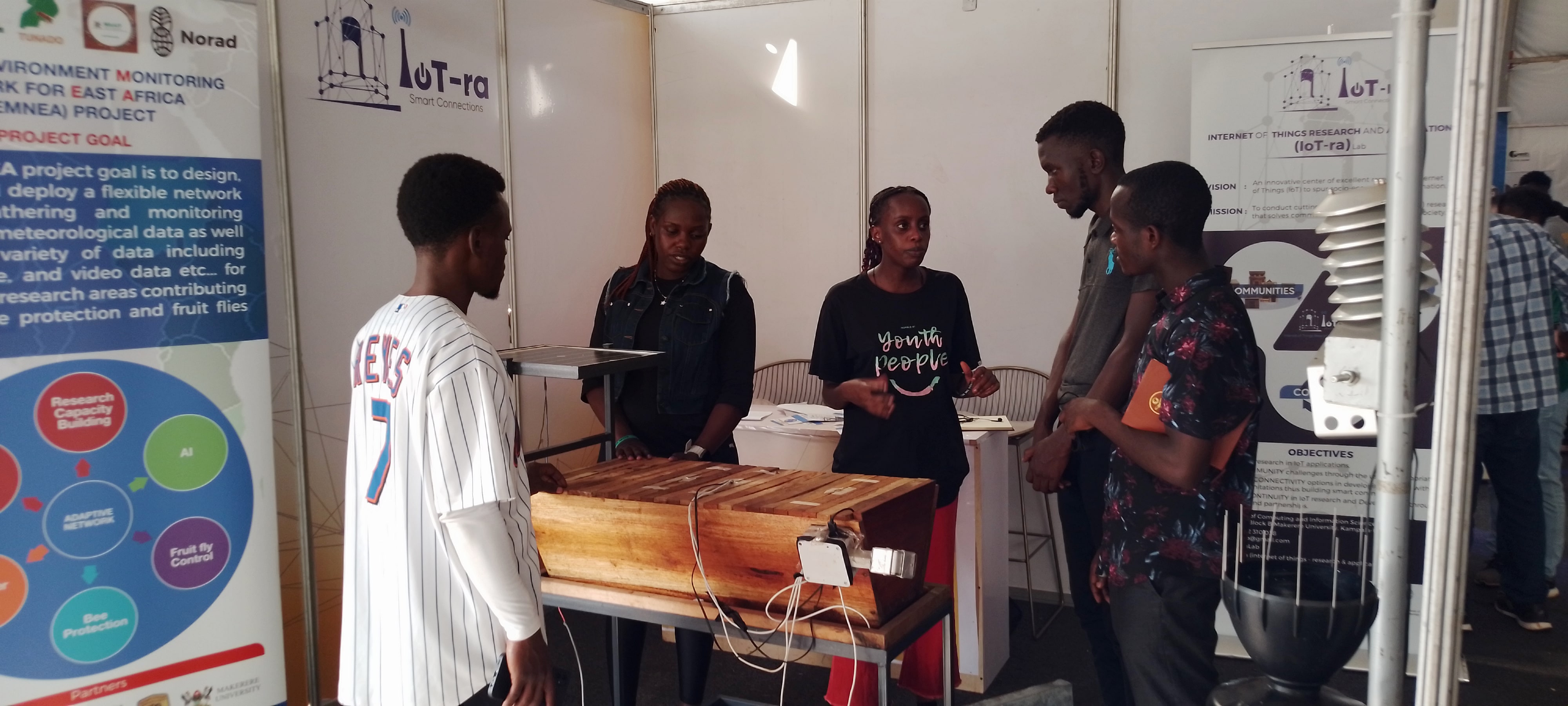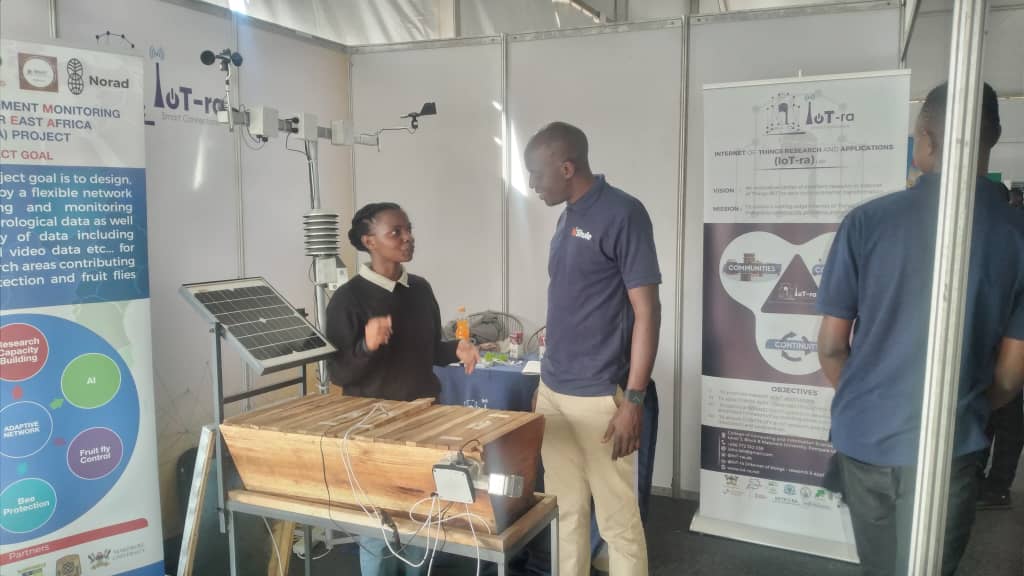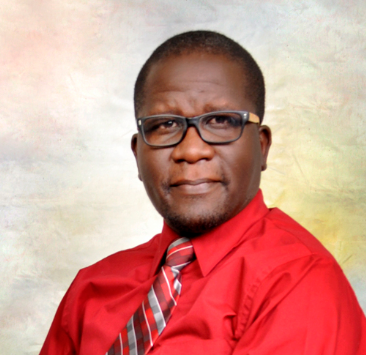Climate-focused innovations to thrive under NEMA supervision.

The AdEMNEA project recently participated in the National Science Week hosted by the STI secretariat under the President’s office in Uganda. The participation was by exhibiting some of the innovations (e.g. the smart bee monitor, the automatic weather station, etc…) that have been developed in the IoT-ra lab at Makerere University.
News Article 1
 The AdEMNEA project recently participated in the National Science Week hosted by the STI secretariat under the President’s office in Uganda. The participation was by exhibiting some of the innovations (e.g. the smart bee monitor, the automatic weather station, etc…) that have been developed in the IoT-ra lab at Makerere University.
The AdEMNEA project recently participated in the National Science Week hosted by the STI secretariat under the President’s office in Uganda. The participation was by exhibiting some of the innovations (e.g. the smart bee monitor, the automatic weather station, etc…) that have been developed in the IoT-ra lab at Makerere University.

The team also interacted with Uganda’s National Environmental Management Authority (NEMA) that is responsible for climate-focused innovations similar to the ones developed by the AdEMNEA project. NEMA is a semi-autonomous institution, established in May 1995, as the principal agency in Uganda, charged with the responsibility of coordinating, monitoring, regulating and supervising environmental management in the country.
With the emergence and high success rates of several climate-focused Innovations over the years such as; M-Kopa, Sun-King, Cocoa-Networks, among others, it has become more than necessary for the government to enact policies and regulations in order to keep such investments afloat amidst unfavourable economic climates.
Mr. Jerome Ssebadduka Lugumira, a soil scientist at NEMA revealed that the authority had since 1993 mainstreamed climate change issues hence the Climate Change Act (2016). In addition, NEMA has formulated guidelines to regulate carbon markets and taxes, conditioning the ministry of energy and mineral development hence the emergence of geo-thermos, hydro-power, solar energies to mention but a few. Furthermore, several agricultural processes and activities have been regulated through Monitoring, Reporting and Verification (MRV) and conducting Environmental Impact Assessment (EIA).

The Investors’ Booth at the National Science Week
We are pondering on these highlights from the investors booth and these are informing our developments as we continue to implement the AdEMNEA project during 2024
How then can Uganda gain money out of Climate-Tech Innovations?
What makes them investible?
Mr. Abel Boreto – Director, Novastar Ventures.
- Factors such as rapid urbanization and rapid population growth – make it possible to build businesses in a clean way and make them profitable. Companies such as
- Mr. Toukam Ngoufanke - Principal, Persistent Capital Ventures.
- Survival is a key factor, and add economics (money) to the fold.
Ms. Yvonne – Investor, Food security
- Climate-tech is a broad industry – Agriculture, waste management & recycling, clean cooking – day to day way of survival.
Mr. Peter Ndichu - Lead, Catalyst Fund
- Africa has an opportunity to climate management – young population, the entrepreneurship ecosystem is vibrant
Mr. Paul Isaac Musasizi – CEO, Kira Motors.
- Meeting the needs of humanity today while thinking of how to meet the needs of humanity tomorrow (environment preservation mechanisms).
Mr. Kevin – private investor
- Businesses that address a significant demand; “An Umbrella business in the desert when it starts to rain cats & dogs.” It’s a growing demand to invest in climate tech
Addressing the issue of Carbon-Credits (Africa is viewed as the ‘Carbon Sink’ in the world).
How can Africa get a respectable chunk of the credits?
Mr. Toukam
- Create enabling environments for carbon trading.
- Bi-lateral agreements with the West markets
- Get the credits to the local farmers to ensure sustainability
How can a local Ugandan Climate-Tech start-up connect to investors?
- Persistence – stay long in the market.
- Focus on your customers. Create processes that help your company to operate as a business and not a non-profit Organisation.
How about climate-tech and food security?
Ms. Yvonne
- Produce your own food – limit imported food
- Are you using renewable energy equipment to irrigate your crops or generators?
- What kind of power sources are you using such as tractors?
- Use less carbon-emitting equipment & opt for natural energies like solar.
_1708691865.png)
